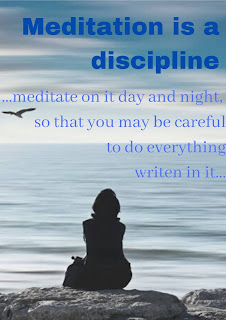ACTIVE LISTENING
THE MYSTERY OF SOUND (TMS)
ACTIVE LISTENING
(HOW TO EFFECTIVELY LISTEN TO MUSIC)
SEMINAR BY ELMOND ISAIAH.
It will interest you to know that when you play music in the background while doing some tasks such as household chores, typing, reading or talking you aren’t actively listening to the music. You are only hearing it.
Yeah… But that is what many of us do most times and think we are listening to the music.
Some ladies will even say, I scored the song while washing the dishes, while washing some clothes etc. well, that’s funny because you will never get the best of music that way!
“Good music is a great healing relaxer to help us escape from the various struggles and stresses of life only if we give proper attention to what it has to offer”
To really enjoy good music and harness this relaxer, we must "actively listen" to it. If the principles of listening to music are actively followed, the result will be a panoramic expansion or enlargement of your musical experience.
Listening to music can be likened to looking at colours. You hear sound in music like you view colours; so distinct!
Listening is pleasure!
Just pushing the play button on your favourite song means a little vacation—a few minutes to relax and check out.😊
Listening is good. Those moments when you’re inside the sound and nothing else matters.
Have you felt that way before? Especially when u put on a good headset.
But if that’s the only way you listen, you might be missing out on an invaluable skill! Oh yeah. Amazing right?
We all listen. But the truth is, most of the time we are listening passively. Listening is learning. But you can’t truly learn from what you’re hearing if you’re listening passively.
Passively means inactively here
Fortunately there’s a second mode of listening that helps you grow in music. It’s the listening that helps you understand what sets the greats apart from the amateurs!
It’s called "Active Listening". And like other elements in music, it’s a skill you need to develop.
What is active listening?
The active listening definition is simple. "Active listening means that all you’re doing is listening.
Passive listening means you’re concentrating on something else.
"Active listening makes listening your central task. Active listening makes hearing a process rather than an afterthought."
Reading this i know what you’re thinking: “I deep-listen to music all the time, how is active listening any different?” As you continue reading you will discover the answer to that question.
How to actively listen.
Active listening requires no distractions. "That means no music videos".
You watch music videos when u want to study certain things like stage arrangement, musical expression, etc.
"No ambient sounds from around your house".
"No cat petting while you’re tuned in".
You need to just listen. "Turn off your computer screen. If you can, *turn off the lights or close your eyes".
Music is better enjoyed with your eyes closed! It takes you deeper that way.
"Find a space you feel relaxed in with no distractions."
"Choose a playback situation that encourages active listening."
"I recommend good headphones". Just make sure there’s no outside sounds floating in.
For some of you who are use to downloading low quality songs, you gotta start downloading a higher quality songs. Use the best possible sound quality you can. High quality files like WAV or FLAC are best suited for active listening. The more layers you’re able to hear, the better. So get songs of good quality.
Ok, so you’re all set for some active listening? Good. Let’s press play.
Before you think, the first step to effective active listening is to get into a critical mindset. Try to see the music as a set of objects. Or even colors. Listen for rhythm, timbre and melody. Pick apart all the different instruments and sounds.
Don’t focus too closely on any one part yet. Instead, just try to keep the sound in the front of your brain for easy analysis.
Great. I was teaching this somewhere and I told them that "singing high notes does not guarantee the award of a good voice. There is a kind texture we look for.
I believe you love the music you do now, but you will love it even more when you listen more closely to it.
"Analysis will never outrank feelings."
The way a piece of music or a song moves people is undoubtedly and ultimately what makes music lovers get really addicted to it and keeps them coming back for more. Music is not just based on some kind of analysis but on how you feel the music relates to you.
There is something you should always feel each time you listen to music.
In fact, music is so powerful that it can move your spirit, soul and body at a spot without your consent. Have you ever entered a salon and just before you sit, or after you have sat, you begin to tap your leg or nod your head in response to the music being played? You may not even know you did all that because many times you don’t even understand the wordings of the song, not to talk of knowing the lyrics yet. That is how powerful music is. It just move you, not necessarily waiting for you to totally agree with it.😁😁😁
Good music does not wait for you to analyse it, it just moves you and changes your mood, affects your emotion (it can make you laugh or cry, smile or scream in anger or excitement). It can bring you joy or make you sober. Music can also make you arrogant, and destroy your relationship with God if you are not careful!,.. Oh yeah....
See the case of many worldly musicians who were formally loyal to God and sang sacred songs in church, they have now deviated to be slaves to sin and their own vain imaginations. They simply became arrogant in the process, then pride set in which made them slip away and they fell off the grace of GOD.
"Music is an excellent and perfect gift given to us by God to always bless us, calm down the agitation of our souls and help us connect easily to Him".
The slyly behind the curtain of every good musician or composer is to a large extent tied to how good they know and apply musical elements and more. Understanding how to manipulate them helps you understand the secrets of music composition.
Let me quickly define melody, timber and rhythm mentioned above
Rhythm/Meter
English dictionary defines rhythm as the variation of strong and weak elements (such as duration, accent etc.) of sounds, notably in speech or music, over time; a beat or meter.
Am glad u guys are enjoying this.
Rhythm talks about the regularity or irregularity of sound in music over a period of time. How do the beats move? Bcause rhythm is built on beat. Does the music move quickly, slowly, or somehow in between?
These are questions that come with rhythm. "It is rhythm that gets you dancing the way you do when you hear music and not necessarily the beat".
Many people use beat when they mean to say rhythm and rhythm when they mean to say beat. These two are not the same but they both are elements of music.
Let’s see their major difference:
You know am teaching how to note certain differences when u listen to music... And I think it's good the teaching is taking this dimension right?
Rhythm is the actual/real flow of music or words in music through time.
Rhythm is usually built upon the beat and this is why you will often see drummers or conductors counting beats before the music begins.
Beat on the other hand is a steady and regular pulse we hear in music. Beat helps in the creation of rhythm. Just like the heartbeat is regular for a healthy person in a resting position the beat in music should be equally spaced.
Rhythm does not always have to be regular like the beat. You can have switches of rhythm in one phrase. It also tells you if you are on time or off time.
We can pick the difference between beat and rhythm now right? Great.
Melody
Melody like other elements of music, has its explanations.
Melody is simply a sequence of notes that make up a musical phrase.
Let us define it to a lay man’s understanding.😁
“Melody is when one person is singing with no other singing part following or when an instrumentalist is playing notes in singles per time which are mostly tied to the soprano”. Does this make sense?
A catchy melody can be the make-or-break of music, and it is not just a matter of what the most important notes are, but where they go! Does a particular line of the music contain a lot of notes or just few? How big is the range of pitches you hear? Do they all cluster on low or high notes? Or they are just scattered in all places? Is there a particular melody line that the soloist always returns to again and again, or uses as a spring board?
Melody is the backbone of harmony. It gives bearing to what the other parts should sing.
Resist the urge to sink into the music when u are listening. Don’t let yourself slip into passive listening.
Active listening techniques.
Now that you’re in a good active listening mode, it’s time to start learning from the sound.
Pick a song that you aspire to. Or pick a song that gets stuck in your head all the time. It should be a piece of music that you want to learn something from.
Active listening makes it possible to learn from any sound
A good place to start is with a question. Your active listening should answer it. Some good questions to ask are:
What layers are at work?
What instruments am I hearing?
Friend, try to isolate each one and re-listen to the song focussing on each one.
How does the mood change between the start and the finish?
Why is the hook so catchy?
How do the chords progress?
What key is the song in?
When does the song shift tone and why?
What is the structure of the song? Does it follow a common structure like AABA?
How do the lyrics fit with the music?
What do the lyrics actually say?
What is repeated?
What changes and when?
These are just some potential questions to ask. You should form your own questions as well based on what you’d like to learn. You will have to listen many times to isolate and understand each part. Each new listen should answer a new question.
Now, let me give you few tips on how to effectively listen to music...
And, hope you know you don't have to be a musician to benefit from this active listening material?
Tips for active listening:
1) Avoid confusing a music video with audio music.
Some people will argue that the best music does not require any verbal or visual association to make it better. You can only enjoy music videos better when you want to see and learn some musical and emotional expressions of a song, which should actually be peculiar to how you feel the music relates to you. Watch music videos also when you want to learn and understand more about stage management, stage arrangement, choir settings, stage lightings, instrument arrangement, etc. Other than these reasons, I suggest music audio is better.
2) Closing your eyes when listening to music helps you relate better with the music and also helps you view the sounds you are hearing in terms of different beautiful colours, or it makes you relate the music with your current life settings.
3) Use your emotional interpretation to try to feel what exactly the composer wants to express to his listeners and try also to connect with the composer’s reality.
4) Listen to the music with so much positive emotion and allows your feelings and mood to change as the sound you hear changes. Let your feelings be positive.
5) Remember to use headphones, headsets or earpiece when you are with people you do not want to disturb by playing your music, or in the night to avoid disturbances. Avoid using headphones while driving.
6) Remember that all music (with very few exceptions), are based on repetition, variation and new lines of melody. Even when you do not enjoy or like the music, try to pay attention to these three elements as they can eventually help the music click with your heart and emotion.
7) In order to train your ear some more, try listening to microtonal music.
Micro-tonality is the use of tones spaced less apart than our 12-tones toning music. Micro-tonality gives more room for unique emotional feels than some normally toned music can express. Micro-tonality simply does not use intervals found in the 12 equal intervals to an octave. The space or tone of a micro-tonality is less than a conventional space of semitone.
Do u understand micro-tonality now?
8) Make sure your headphone is of good quality as headphones with less quality can reduce the quality of the music, and even hinder you from hearing some beneficial spices in the music.
9) Fix yourself in the scenario of what the music is trying to put across. "Every music piece conveys messages". Check out what the message is about; is it a story, a word of encouragement, words of hope, for healing? Etc. whatever the message is, you can fix yourself in as though the message is directed to you, especially when the music has a strong touch of God.
This is how to liste to music.
And I think if we follow these things carefully it can be applied to every aspect of our lives
You just have to listen!
There is always an inner voice behin speaking. Etc
GOD has helped us to go this far...
There is mor we can talk about still..
But for the level of this class... We can stop here...
Did you learn anything new?
Prsaise GOD.
E.A ISAIAH (TMS President)
(07016606412, 08067370005)
https://themysteryofsound.blogspot.com
www.themyseryofsound1@gmail.com
Follow us also on following social media platform:
Facebook: The mystery of sound.
Twitter: @TMSound_
Instagram: tmsound_











Comments
Post a Comment